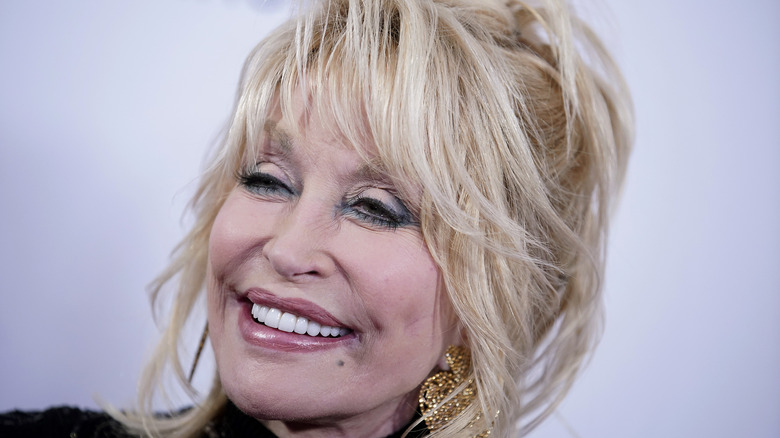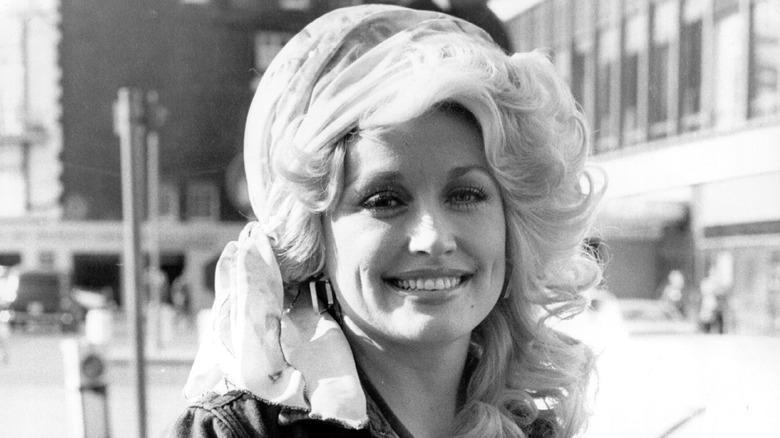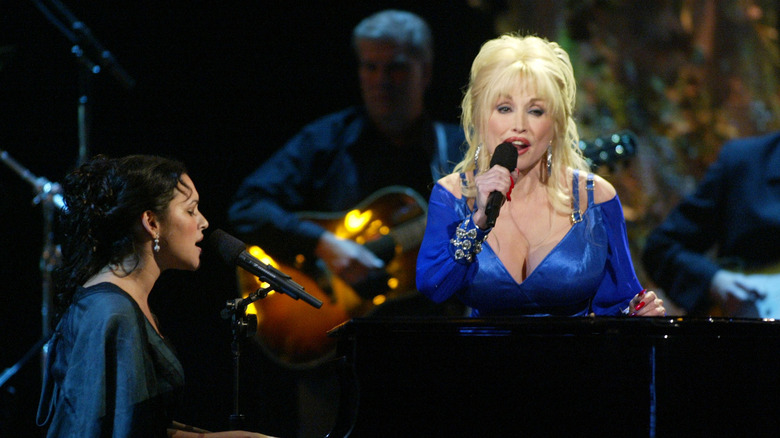The Real Reason Dolly Parton Wrote The Song Jolene
Few songs have the ability to transcend genres quite like Jolene, Dolly Parton's career-changing croon about the beautiful woman threatening to take her man. Even though the song sounds like it's about a single woman, the story Parton tells is as familiar as breathing to people the world over. The song's lyrics are honest and simple, and even if no one wants to admit it, they explain a feeling everyone who is or has been in a relationship has felt: jealousy.
Even if you're as secure in your relationship as you can be, if you suspect another person has feelings for your significant other, envy begins to creep in. The question of whether you do something about it or move on is answered by Jolene. In the context of the song, the speaker feels she has no choice but to confront the culprit. The result? A deeply emotional ballad that all too many people can relate to.
The exceedingly personal nature of the song has led fans to wonder if it's based in truth. With the emergence of artists like Taylor Swift, fans have started looking for the true stories behind the songs that seem to hit a little too close to home. When Jolene was released, we didn't have the internet to turn to for dissections and analyses of the song. Luckily for fans, decades later, Jolene still connects, but the mystery of the woman with auburn hair has long been solved.
Jolene was an 8-year-old Dolly Parton fan in the late '60s
In an NPR interview from 2008, Parton revealed the true story behind Jolene, and it probably wasn't what fans would expect.
In the early years of the country singer's career, she appeared on The Porter Wagoner Show. It was during her time on the show that several of her hit songs were recorded. According to Parton, after these shows, she often stayed late signing autographs. This is when she met the now-infamous Jolene.
Parton told NPR she met "this beautiful little girl" who she guessed was about 8 at the time. She explained further, "And she had this beautiful red hair, this beautiful skin, these beautiful green eyes, and she was looking up at me, holding, you know, for an autograph. I said, 'Well, you're the prettiest little thing I ever saw. So what is your name?' And she said, 'Jolene.' And I said, 'Jolene. Jolene. Jolene. Jolene.' I said, 'That is pretty. That sounds like a song. I'm going to write a song about that.'"
And write a song about that, she did.
Only, that's not where the story ends. While the little girl Parton met after a TV show one night in the late '60s or early '70s provided the initial inspiration for the song, it's safe to say Parton wasn't worried about her "taking her man" — that would be ridiculous. Little Jolene lent her name and her looks to Parton, but the real woman she was worried about was someone else.
Jolene is really about a bank teller with an inappropriate crush
You can't write a song like Jolene, see it become the hit it is, and not understand that fans want more to the story. In fact, people want more to the story so much that artists have written songs from Jolene's perspective, in answer to Parton (via People). And the singer knows this all too well.
Whenever Parton performs the song, she seldom neglects to take a moment and tell her fans the juicy detail they surely want to know: who was this woman of apocryphal beauty and charm? At Glastonbury in 2014, Parton took the stage and told fans the song came from "a little bit of truth" (via The Independent). Parton further explained to the crowd, "I wrote that years ago when my husband... was spending a little more time with Jolene than I thought he should be." To the crowd's delight, she continued, saying, "I got rid of that redhead woman in a hurry."
Parton was able to go a little more in-depth with NPR, telling them her Jolene was a bank teller who "got this terrible crush on [her] husband." Though the song's lyrics are devastating — see the phrase, "My happiness depends on you," and the entirety of the second verse — Parton's relationship with her husband was never seriously in danger. She calls it "an innocent song all around," even though it sounds anything but.
The "innocent" song's staying power is undeniable. It's been covered by dozens of artists — from Miley Cyrus to The White Stripes and beyond — and Parton has said that the song's relatability is a big reason for its continued success.
According to Parton, we're "always threatened by other women, period." Jealousy is often regarded as a sign of danger in relationships, but anyone who says they've never felt it is simply lying. Jolene lets people imagine a scenario in which they face the person behind their torment.


